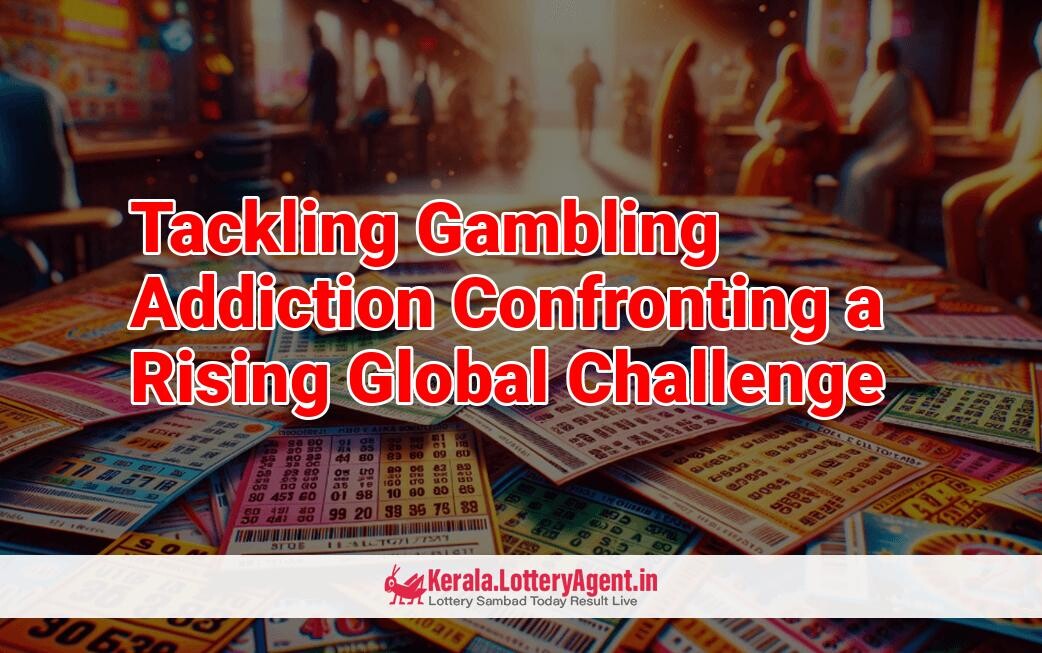
Psychiatry experts categorize addiction as a brain disorder characterized by the repetition of actions despite their detrimental impact on one’s health and well-being. Alarming statistics reveal that gambling addiction is one of the most prevalent forms of addiction today. This surge can be attributed to a vast array of land-based gaming centers and the proliferation of online gambling portals that offer lotteries, betting, and casino games. While these activities may serve as entertaining pastimes, it is critical to approach them with caution. This article explicates the intricacies of gambling addiction and proffers strategies to halt its progression.
The COVID-19 pandemic has notably amplified the number of gambling and gaming addictions worldwide. Experts suggest that the confines of lockdown raise the likelihood of forming a pathological bond with activities like gambling. Key factors contributing to this increased risk include social isolation, the search for stress-relief outlets, elevated stress levels, and pressing financial concerns. The extended periods spent at home—often in solitude for weeks—have led many to develop an addiction to online gambling at an alarming speed.
Gambling addiction is a mental health disorder where individuals cannot curb their gambling behavior, even when they are fully aware of the negative repercussions on their well-being. Analogous to substance addiction, where the afflicted person is unable to cease substance use, a gambling addict continues to play in spite of damaging consequences. The addiction also displays traits common to impulse-control disorders such as kleptomania or pyromania.
The United Kingdom alone reports about 600,000 gamblers suffering from addiction. In the United States, more than 2% of gamblers experience some form of gambling addiction. This burgeoning problem demands immediate and serious attention. Early recognition and intervention are crucial in mitigating the issue.
There are recognized variants of gambling addiction, each presenting distinct symptoms. Identifying these types quickly is critical to addressing the problem effectively. Forging addiction prevalence rates can be challenging, with many individuals utilizing self-help measures. Nonetheless, experts estimate that 2-3% of all gamblers face some degree of addiction.
The repercussions of gambling addiction extend far beyond financial distress. It can significantly undermine the gambler’s quality of life, as well as that of their family, partners, and friends. Therefore, vigilance in spotting the symptoms of compulsive gambling is essential.
The mental health of a gambler is often the first casualty. Obsession with gambling can overtake other life interests, leading to neglected responsibilities and missed significant life events. Furthermore, mental health issues can precede or be exacerbated by gambling addiction. It is not uncommon for a chronic gambling habit to precipitate familial strife, financial ruin, and a general deterioration of personal relationships.
When suspecting a gambling problem in oneself or a loved one, it is beneficial to be cognizant of the common signs of addiction. These can range from a preoccupation with gambling and a need for increased monetary risk to chasing losses and engaging in deceitful behaviors.
Those facing gambling addiction can take various approaches for recovery. Recognizing the problem in a friend or family member is the preliminary step, followed by offering guidance and support. Solutions include professional counseling, group support such as Gamblers Anonymous, and possibly medication to manage withdrawal symptoms.
Understanding the risk factors of gambling addiction is imperative. These factors include but are not limited to legal accessibility, overconfidence, impulsiveness, vulnerability due to personal circumstances, low income, familial history of addiction, and early exposure to gambling. While demographics such as age and gender also play roles, with teenagers and the elderly being particularly susceptible, and men currently more prone to gambling addiction than women, it should be noted that gambling addiction transcends all demographic boundaries.
Misconceptions about gambling addiction persist, such as the idea that one can only be addicted if gambling occurs daily or that only the financially unstable are susceptible. However, addiction can afflict anyone regardless of personal characteristics or social standing.
Offering monetary aid to a gambler often exacerbates the problem rather than providing relief. Instead, steering them towards professional therapy or group support is advisable.
Overcoming gambling addiction entails a challenging, yet surmountable journey. The process starts with acknowledging the issue and understanding its underpinnings. Support systems, whether through groups, therapy, or personal networks, are invaluable in navigating this journey.
Ultimately, helping a gambler overcome their addiction demands a compassionate, yet firm approach. Safeguarding personal finances and emotional wellbeing is crucial for those offering support. Collaboration with others affected by the gambler’s behavior and setting firm boundaries are essential steps in a collaborative effort towards recovery.
In conclusion, while gambling addiction represents a significant challenge with severe implications, recognizing and confronting the issue head-on can pave the way to recovery. The guidance and intervention of supportive networks, alongside the resolve of the individual affected, are the bedrock for a successful fight against gambling addiction.











